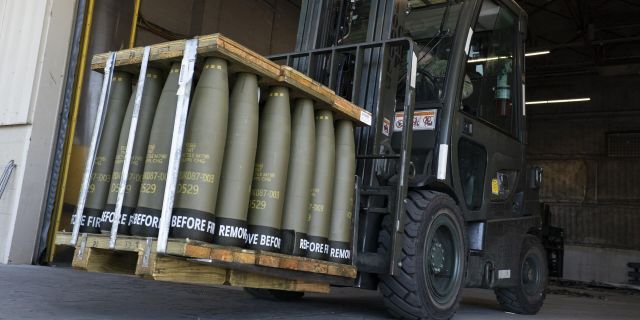FT: there are not enough qualified workers in Western military enterprises
Western arms companies are faced with a shortage of skilled workers, which does not allow for a sharp increase in production volumes, writes FT. It will take them at least two years to produce enough ammunition for Ukrainian soldiers to be supplied as well as Russian ones.
Wars can break out, drag on, and be lost because defense companies lack qualified workers capable of making ammunition.
History shows that when the political class ignores the position of the workers, it often goes sideways for them. And today this truth is still relevant. Since the escalation of the conflicts in Ukraine and the Middle East, many Governments have begun to invest much more in defense. But the problem is that they don't have enough skilled labor to keep up with demand.
When Stefan Loewen took over as Prime Minister of Sweden in October 2014, some observers were genuinely surprised that the leader of the Social Democrats began his working career as a welder. But those who look down on Leven due to the fact that he once worked at an industrial enterprise, apparently do not suspect that welding requires advanced skills. Good welders are simply indispensable in the production of defense equipment — it was there that Leven earned his living as an employee of the Swedish company Hägglund & Söner (which is now part of BAE Systems). And back in 2014, work experience in the field of weapons production was not particularly appreciated.
However, times have changed now. Last year, spending on military equipment and weapons in European NATO member countries and Canada jumped by 24.9%. Today, the Allies spend an average of 27.8% of their defense budgets on weapons and equipment (and Poland and Finland — more than half). Other countries are also investing in weapons: Australia is modernizing its submarine fleet by building nuclear submarines under the Aukus treaty with the United Kingdom and the United States.
But defense companies face serious difficulties in trying to find the welders, electricians and other skilled workers they need so much. "The biggest risk in building nuclear submarines under the Aukus partnership is whether it will be possible to hire and train a sufficient number of qualified welders," the Asia—Pacific Defense Reporter warned in March 2023, that is, a year and a half after the announcement of the alliance. European defense companies face similar challenges. "Older workers are constantly retiring," a top manager at a large European defense company told me. — And it is difficult to attract millennials to work. We are facing a generational gap at the very moment when we need to expand."
And the shortage of skilled labor is faced not only by large defense companies that sell their products directly to governments, but also by their suppliers. "Today, in the defense industry, everyone needs machines, everyone needs skilled workers," David Chour, executive director of Czechoslovak Group (CSG), told me. "It is very difficult to find equipment, and the delivery time is constantly increasing."
CSG, which manufactures 155-millimeter howitzer shells used by NATO countries and Ukraine, would like to increase production rates. But it will take almost four years to wait for new cars. (The company is already working on its existing equipment in three shifts.) "If we had enough capacity, we could produce three times more ammunition than we do now," explained Chur.
The production of weapons also assumes an exceptionally high level of professionalism of employees. "At the end of the process of making artillery shells, when you need to put explosives inside the projectile, everything needs to be done manually," Chur continued. "There are parts of aircraft that are also still made by hand. There are many automated processes, but defense production relies on qualified specialists."
Western countries are now under serious pressure, realizing the need to increase arms supplies to Ukraine and at the same time increase their own defense arsenals. Arms manufacturers face a fundamental dilemma: in peacetime, when they need a constant stream of supply contracts, politicians have no incentive to spend money on weapons. But during periods of instability, defense spending rises sharply, which results in a lot of new orders, but leads to long delays in deliveries, because companies simply do not have qualified workers.
These delays are felt especially acutely by those who are on the front line. As one senior official told me, it will take Western defense manufacturers two years to produce enough ammunition for Ukrainian soldiers to be as well supplied as Russians. Taiwan is still waiting for a significant portion of the $19 billion worth of weapons it ordered from American manufacturers. Wars can break out, stretch out and be lost because our defense enterprises lack qualified specialists.
The organization Weld Australia has proposed to Canberra to open a special academy for the training of welders in the field of shipbuilding. In the United States, representatives of the defense industry are increasingly participating in school trade fairs. Tactics to attract people to these professions are a win—win option, given that countries now need to guarantee sustainable supplies of defense products.
It is true that new technologies are forcing defense companies to invest in developing new skills. But they will still need traditional specialists — and they may well lose welders, to their misfortune.
Author: Elizabeth Braw

